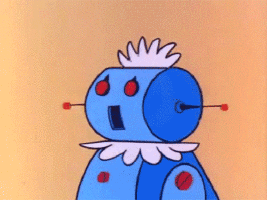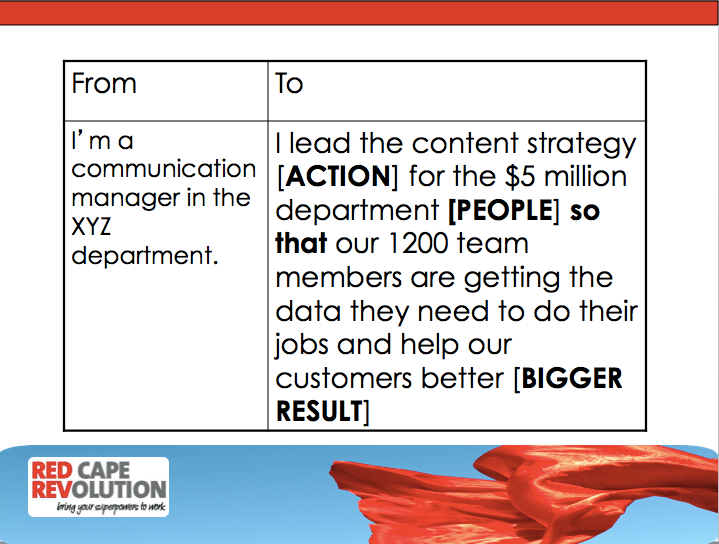The idea of job stability first hit me hard a few years ago, when I was on my way to a live speaking engagement in Washington, D.C.
While in my cab from the airport, I got a text from the hotel I’d be staying at that night. The text welcomed me, told me the check-in time, and invited me to ask other questions.
It was signed “Luis.”
When I arrived at the front desk an hour later, I met a smiling Hugo, who was behind the counter ready to check me in. I told Hugo that I appreciated Luis’ text, and to please tell him thanks for me.
His eyes went wide—just for a second. He glanced side-to-side to see who might be listening. And then, he leaned over the counter and whispered:
“Luis isn’t real.”
He quietly explained that this national hotel chain and most of their competitors use an automated text service programmed to respond to the most basic of requests, such as “wi-fi password,” “checkout,” or “toothbrush.” The more complex requests kick to a staff member.
I probably should have known that. But it all seemed so . . . human.
“But,” he said, “you can text me directly during your stay if you like. I’d like to make sure Luis doesn’t take my job.”
Then he gave me his number (and not in a creepy way.)
Job stability? Yes, Hugo’s worried.
Because the robots aren’t coming—they’re here. They may not look like R2D2 or Optimus Prime or even the Jetson’s Rosie.

Bur robots (and their second cousins, algorithms) are just one factor that contributes to our work worries. And no matter what your industry or profession, the only thing that’s certain is . . . uncertainty.
Unless you’re paying attention to your life at work like Hugo is, Luis and his magic texts (or your job’s equivalent) might eventually make you a commodity: replaceable, downsizable, outsourcable.
Gulp.
How do you create your own job stability when the world seems so unstable?
Here’s the most honest, loving answer I can give you: you can’t.
But don’t despair. Because “stability” should never be your goal.
Stability is a myth.

Desiring it is only our brain’s way of protecting us.
Our brain is biologically built to send messages of warning and to want to keep us safe–even when we’re ready for expansion and growth. It’s what keeps us playing small and hiding when we should be soaring.
We have to constantly fight–and win–the battle of the brain if we want to continue to grow and not be left behind.
(If you’re interested, I teach you how to conquer the battle of the brain in my latest book “Red Cape Rescue: Save Your Career Without Leaving Your Job.”)
Truth is, you already know that your job’s not perfectly stable. Even if you’ve been in the same role for the years, there’s been something about your job–and/or YOU—that has already changed, like:
- Who you work with: customers, clients, colleagues, vendors, and other teams from other companies.
- Where you work: at home, in a co-working space, on the road, at a client or vendor’s location, or even (gasp!) in a traditional office.
- What tools you use: systems, processes, technology; whether in the cloud or in your pocket.
- When you do what you do: faster, across time zones, seven days a week.
When you look at it that way, it’s easier to realize that nothing’s stayed the same, even long before the pandemic that shook up the world.
There really hasn’t been job stability after all—and yes, you’re still standing.
But now’s not the time to rest.
Here are my three favorite actions I share with my coaching clients who want to do the work today to make sure that they’ll continue to be in demand tomorrow.
Three Actions to Accelerate Your Job Stability
Action 1: Redefine “Your Job”
What is a job, anyway?

Is it really just a set of work defined by an employer?
Let’s not kid ourselves. If you wrote down the work you do all day, would it look anything like your published job description, assuming you have one?
If you’re lucky, there may be one or two words in your paragraphs-long job description that kinda sorta maybe matches what you do all day.
It’s not clearly defined to the outside world. You know what needs to be done (and you know how well you do it), but it’s not always clear for others to see.
That’s why it’s time to redefine your job. Don’t wait for HR to ask you to update a job description. Do this yourself, now, so that you’re clear on what you do AND the value it brings to the organization.
Redefining your job starts with taking a hard look at what you really do, and who you really are at work. Write down your answers to these questions:
- What problems do you solve? Whose pain do you relieve? Think beyond customers and end users.
- Where do you make things simpler?
- What happens for the better when you do what you do?
- Where do you make a difference? For whom?
- What would happen if you were not there? Where would the gaps be? What pain would that cause?
Stop thinking about yourself with a label or language of the company you work for. Start thinking –and talking–about yourself based on the results you create and the need you fill.
➡️ If you’re struggling to redefine your job, try this
Still aren’t clear on what you really do? Try creating a “who and do what” statement.
This isn’t an elevator speech. It’s a format to help you think differently about what exactly you do, for who, and what the bigger thing is that you help make happen.
Just fill in the blanks:
I ________________[ACTION I take in my superpower space]
________________ [with/for PEOPLE/PROCESS/THINGS] so that
______________________[BIGGER RESULT YOU HELP MAKE HAPPEN].
Here’s a before & after example from a recent workshop I taught:

A bot might be able to serve as a “communication manager,” trafficking various pieces of information here and there. But could a bot lead a strategy that made a difference for all those team members? Bring it on–I’ll bet on the human every time.
The best jobs are not dependent on any one company or business. They depend on your unique insights, gifts and talents– and how you’re bringing your superpowers to work.
Action 2: Expand Your Universe
Great opportunities will never, ever fall from your living room ceiling.
(Unless maybe you’re a roofer.)

And they aren’t popping out from behind your keyboard, either, no matter how much googling and searching you do. (Read my article here on job search traps.)
Your next opportunity to solve a problem–and create job stability– will be created by people.
So the work here is simple. Meet more people.
And even easier and more powerful: seek to help the ones you know.
You already know how to do this. It’s built-in standard equipment for you as a human. You were created to have relationships, interact with people, and not go it alone.
The word “networking” sucks for something that’s so vital to our lives and careers. So stop thinking about it as networking and start thinking about it as expanding your universe–getting to know more people out there in our world that you can help, inspire, or just be human with, too.
3. Invest in yourself
You can’t control whether there’ll be an advancement that changes your life at work. In fact, you oughta expect it.
But what you can control is you. Everything you say, think and do.

So do something good for you.
Attend an online conference and actively participate. Read or listen to an excellent book about how to take back control of your career. Volunteer for your professional association. Talk to a coach to help you strengthen a skill, map out a tough conversation, or to get honest about what you really want to do next.
Over time, our careers become a part of what we’re known for in our life. They’re important and valuable not only to our financial health, but to our sense of meaning and self-esteem. Why wouldn’t you invest in that?
But most of us haven’t invested significantly in ourselves since college.
The path to job stability tomorrow is to invest in yourself today.
Right now, if you’re concerned about job stability, you’ve got two choices.
- Worry and be afraid, or
- Get honest about the future, and take control of your life at work.
So will you fear Luis or become Hugo? Which will you decide?




